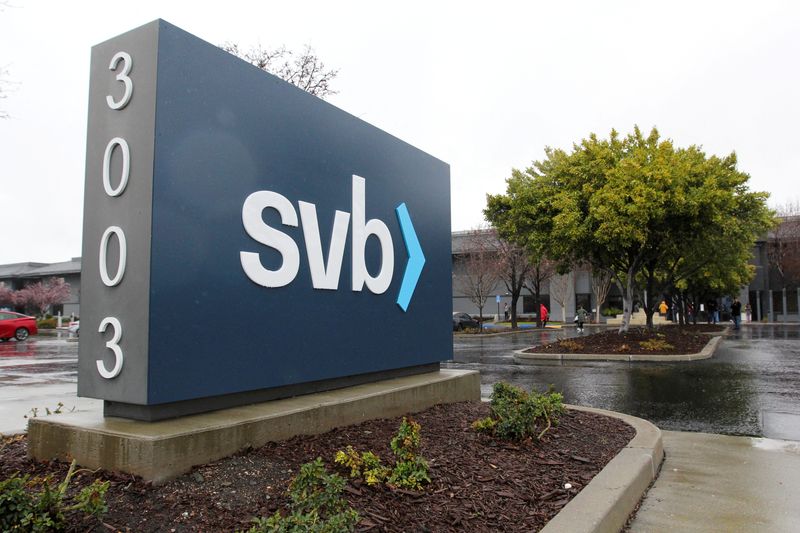By Geoffrey Smith
Investing.com -- SVB Financial Group, the parent company of Silicon Valley Bank, has filed for Chapter 11 bankruptcy, a week after federal regulators were forced to rescue the bank with emergency measures.
The group said it has filed a voluntary petition for a court-supervised reorganization under Chapter 11 in the United States Bankruptcy Court for the Southern District of New York "to preserve value."
It added that SVB Securities' and SVB Capital's funds and general partner entities are not included in the Chapter 11 filing and continue to operate as usual. The holding company will continue to look for strategic alternatives for these businesses.
Silicon Valley Bank itself is no longer affiliated with the group, its assets and liabilities having been transferred to a new bridge bank last week after regulators took it over. The bank had suffered a spiraling crisis of confidence, as a deposit run forced it to liquidate securities at a loss, the news of which pushed more and more of its - largely corporate - depositors to pull their money.
Efforts by the Federal Reserve, Federal Deposit Insurance Corp., and the Treasury to find a buyer for it as a going concern failed, despite a promise to honor all of its deposits. The Fed and FDIC were reported earlier this week to be planning a fresh attempt to sell the bank, while other reports suggested that various venture capital groups, with the possible backing of Apollo Global Management (NYSE:APO), were looking at buying selected operations.
The bank's collapse was the second biggest on record in the U.S., beaten only by Washington Mutual's failure in 2008. It has sparked a crisis of confidence among second-tier U.S. banks, especially those based on the West Coast with high exposure to the startup world and other corporate customers.
First Republic Bank (NYSE:FRC), the one most widely seen as the next potential domino to fall, was under pressure again in premarket trading on Friday, falling over 20% despite Thursday's news that a consortium led by the U.S.'s largest banks had agreed to deposit $30 billion with it, effectively replacing most of the funds that its depositors had pulled in recent weeks.
